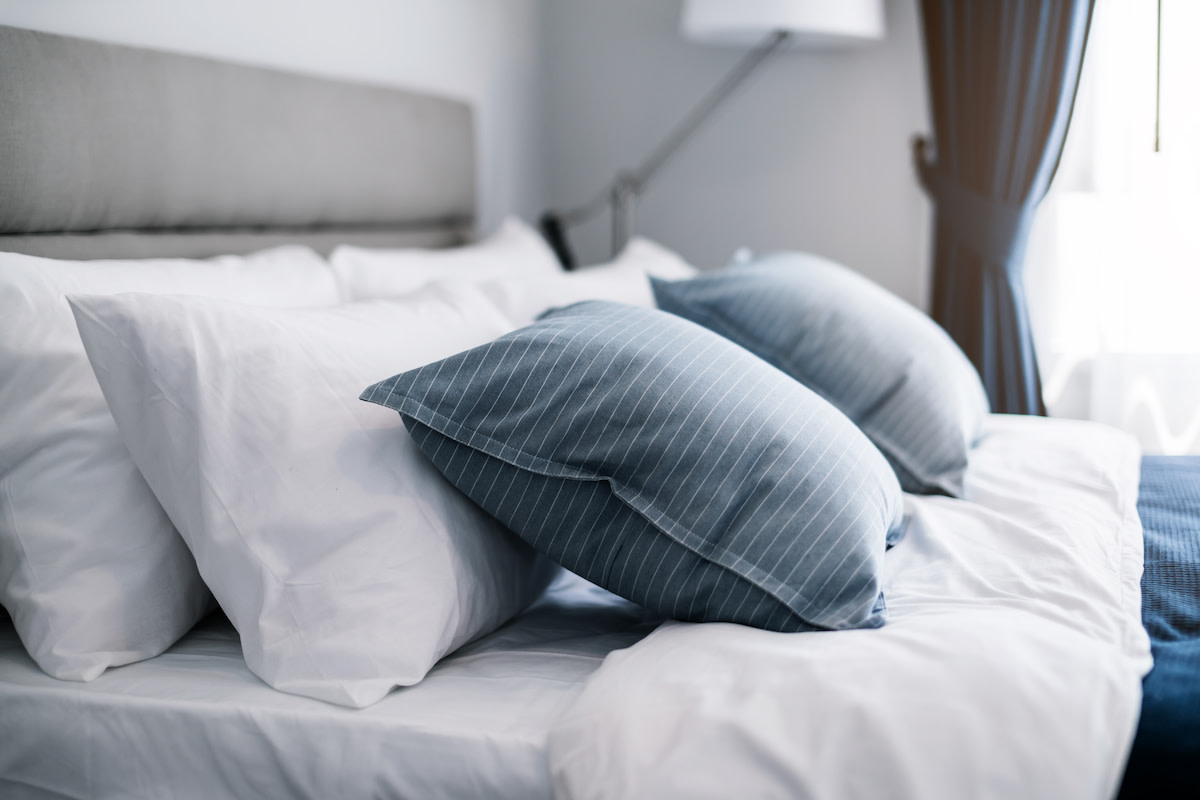Sleep Hygiene Tips: How to Practice Good Sleep Hygiene
Written by MasterClass
Last updated: Jun 7, 2021 • 4 min read
For most people, seven to nine hours of sleep are necessary to achieve a healthy state of well-being. Practicing better sleep hygiene allows you to consistently get a good night's sleep.
Learn From the Best
What Is Sleep Hygiene?
Sleep hygiene is an assortment of practices and habits that are conducive to getting good sleep on a consistent basis. Sleep hygiene centers around the notion that your daily behavior, particularly before bedtime, has a large impact on your overall quality of sleep. By practicing healthy sleep habits like creating a comfortable sleep environment and setting a consistent sleep schedule, you can achieve a more restful sleep and wake up refreshed in the morning.
3 Signs of Poor Sleep Hygiene
If you’re having trouble sleeping, three primary signs might indicate your lack of sleep is caused by poor sleep hygiene habits.
- 1. Consistently struggling to fall asleep in a timely manner.
- 2. Frequently waking up before you intend to wake up.
- 3. Daytime sleepiness or fatigue.
If you take steps to improve your sleep hygiene and it doesn't help you sleep better, consult your doctor to obtain a proper diagnosis.
3 Benefits of Good Sleep Hygiene
Good sleep hygiene helps you get enough hours of sleep a night and helps ensure those hours are quality sleep hours. Practicing sleep hygiene can lead to healthy sleep habits, resulting in benefits both to your physical and mental health.
- 1. It can improve your overall mood.
- 2. It can decrease feelings of anxiety.
- 3. It can improve your memory, focus, and problem-solving skills.
8 Tips for Improving Sleep Hygiene
The following tips are ways to improve your sleep hygiene and get a more restful sleep.
- 1. Keep a regular sleep schedule. Going to sleep and waking up at the same time every day of the week (even weekends) is essential to good sleep hygiene. Maintaining a consistent sleep schedule sets your body's internal clock to anticipate winding down and waking up at specific times, making it easier to fall asleep and stay asleep until morning. While you'll have obligations that get in the way of your normal sleep time, make sure to return to your schedule the following day. For instance, if you stay out late at a party, rather than sleeping in later than usual, try to wake up at your regular time the following day to better maintain your sleep-wake cycle.
- 2. Eliminate environmental noise. If you live in a noisy location or sleep during noisier daytime hours because you work a night shift, try sleeping with earplugs to prevent outside noise from disturbing you. White noise machines can also help drown out environmental sounds.
- 3. Establish a relaxing bedtime routine. Partaking in a relaxing activity within the hour before you plan to fall asleep will ease your transition into sleep. Some examples of relaxing pre-bedtime activities include reading a book, taking a warm bath, listening to soothing music, and meditating.
- 4. Avoid midday caffeine and late-night alcohol. A late-afternoon coffee boost may help get you through the end of your workday, but any caffeine consumed within six hours of your bedtime has the potential to keep you lying wide awake in bed. While alcohol will certainly make you feel sleepy at first, just one alcoholic beverage close to your bedtime can obstruct your sleep cycle, preventing you from getting enough REM sleep and deep sleep.
- 5. Create a cool, dark sleep environment. A crisp 65 degrees Fahrenheit is the ideal temperature for a good night's sleep. You also want to dim the lights in your home at least an hour before bedtime. Bright lights at night interfere with your circadian rhythm, tricking your brain into thinking it's still daytime and making it more difficult to fall asleep.
- 6. Make your bed a worry-free zone. One method to help you sleep better is to eliminate all activities from your bed with the exception of sleep and sex. When you're in bed, avoid catching up on work, scrolling through social media on your phone, and having conversations with your partner about major life decisions. This helps ensure that you don’t associate your bed with wakefulness. Once you get under the covers, it should send your brain a signal that it's time for sleep or sex and nothing else.
- 7. Turn off your phone, laptop, and TV. The blue light that radiates from electronic screens prevents your body from releasing the sleep hormone melatonin, which throws off the timing of your circadian rhythm. In addition, electronic devices tend to keep your mind racing and make it more difficult to wind down into sleep mode.
- 8. Avoid exercising close to bedtime. While establishing a regular exercise routine can improve your quality of sleep over time, you should plan to workout at least three hours before you want to fall asleep. Exercise increases adrenaline and stimulates brain activity, neither of which promotes drowsiness.
Want to Learn More About Catching Those Elusive Zs?
Saw some of the best darn logs of your life with a MasterClass Annual Membership and exclusive instructional videos from Dr. Matthew Walker, the author of Why We Sleep and the founder-director of the Center for Human Sleep Science at the University of California, Berkeley. Between Matthew’s tips for optimal snoozing and info on discovering your body’s ideal rhythms, you’ll be sleeping more deeply in no time.
